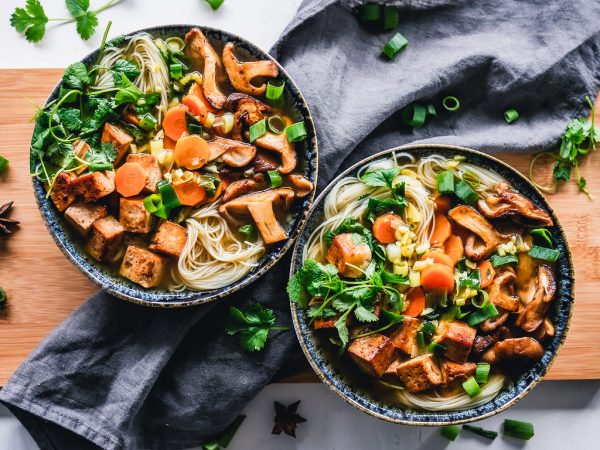
Last Saturday, Joe Yonan discussed his new book at the New Orleans Book Festival at Tulane University on vegan, plant-based cooking and his journey from a successful Washington Post food columnist to becoming a vegan cooking expert.
Yonan is the Food and Dining editor of The Washington Post and writes the Post’s weekly column, “Weeknight Vegetarian.” In his newest cookbook, “Mastering the Art of Plant-Based Cooking,” Yonan aims to show people that vegan and vegetarian cooking “opens up possibilities.”
Many people see veganism as a restriction, Yonan said, but “the best way to incentivize people to cook this way is to show them that it can be really delicious and not that hard and not that expensive … there’s a lot of options.”
While he has always loved cooking and food, Yonan’s career started in journalism. When he finally decided to make a career change in 2005, at the time a copy editor for the Boston Globe, Yonan turned his attention towards his true passion — food.
“Rather than leave journalism, I wanted to combine it,” he said.
He moved to Washington, D.C. and started a new job with The Washington Post and embarked on a journey of inspiring people across America to incorporate sustainable, inexpensive and healthy vegan recipes into their lives and kitchens.
Yonan emphasized that vegan cooking is not only less expensive, but it also saves grocery trips and cuts down on waste.
“You can make a lot more things based on pantry products, on shelf-stable products,” Yonan said. “With more and more obvious evidence of the human impacts on climate change … the more we can do to waste less food, to grow things that require less resources,” the better.
For example, Yonan’s nut-based ice cream recipe doesn’t require real cream, allowing him to have a longer shelf life for his ingredients.
“The most expensive food in the world is the food that you buy and then just throw away,” Yonan said. “I just find it super fun and satisfying to just take a bunch of nuts, and then by the various ways that I treat them, to turn them into ice cream with only a couple other ingredients.”
Yonan also has a passion for global cuisines. His new cookbook features many globally inspired dishes, and he worked with accomplished chefs from across the world to ensure that the recipes “pay enough respect or enough understanding of the cuisines to do them justice.”
His Creamy Sunflower Ramen recipe, which incorporates a broth made of sunflower seeds, “has an underlying respect and understanding of the traditions, goals and depth of true traditional Japanese ramen,” rather than being a surface-level imitation.
“I wanted the book to show people that there are strong plant-based traditions in all of these other cultures, that there didn’t have to be a tradeoff,” between maintaining a dish’s traditional heritage and losing its authenticity, he said.
Yonan’s cookbook is for anybody, cook or non-cook, vegan or non-vegan.
“I really want the book to be attractive to anyone who’s interested in this kind of cooking,” Yonan said. “Whether it’s just for one meal, or a lifetime.”
“There’s a lot of options … I want people to see a world opening up and not closing off,” Yonan said.
Cassidy Meehan contributed to the reporting of this story.


